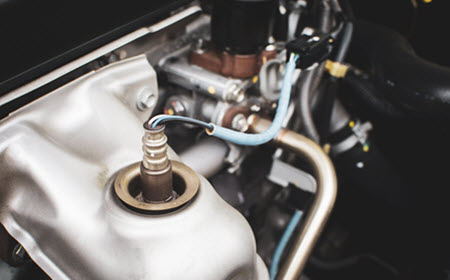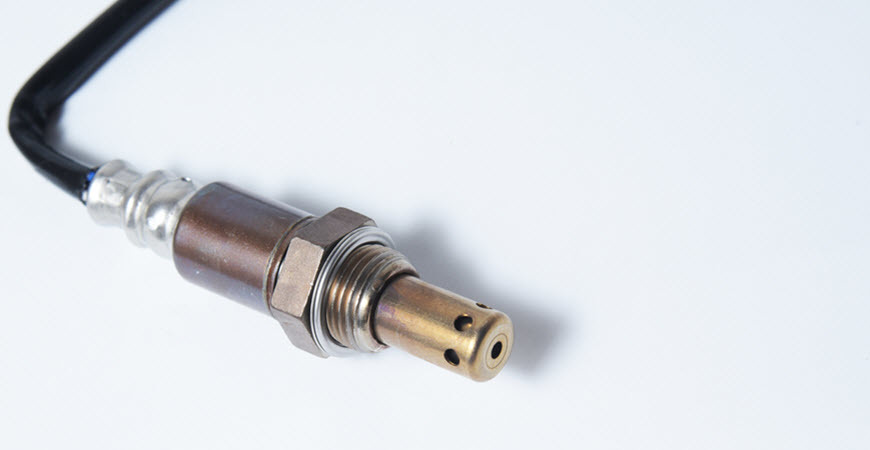In today’s world of electric vehicles and an evolving global climate, the push for better fuel economies has never been more intense. In fact, some drivers make their next vehicle purchase based solely on how many miles to the gallon they can get out of their ride. Others may primarily focus on overall performance and comfort.
With Audi, drivers don’t have to choose between performance and fuel economy. The high-end vehicle manufacturer has worked hard to design vehicles that deliver on satisfaction across the board, from a comfortable ride regardless of the road conditions to enhanced fuel economy for the sake of your wallet and the environment.
Fuel economy is just one of several reasons that your Audi’s O2 sensor is incredibly important. The sensor alerts the engine to the current fuel-to-air ratio in current conditions, which allows your vehicle to pump out the highest horsepower at the lowest cost. If your O2 sensor fails, your Audi’s performance will noticeably be affected across the board, and that’s when it’s time to bring your vehicle in to see a qualified mechanic. But first, let’s go over the causes of a failing or failed O2 sensor.
Reasons Your O2 Sensor May Fail
O2 sensor failures can be caused by a small handful of reasons. As a rule, they are designed to work until they don’t anymore, which is to say, unlike many parts of your Audi, there is no manufacturer-recommended replacement date on your sensor.
- Normal wear and tear is the most common reason for any O2 sensor to fail, regardless of the vehicle’s make and model. Over time, the sensor can become clogged, damaged, or just used, which results in a faltering or failed O2 sensor.
- Contamination and buildups are the next most common reason for an O2 sensor to fail. If your Audi has a leak in the engine due to the fuel lines, cooling systems, or lubrication systems, the O2 sensor will clog up and be unable to perform accurately. If this is the case, the underlying issue will also have to be addressed, or any replacement sensor will quickly become clogged as well.
Signs and Symptoms of a Failing O2 Sensor
There are several warning signs your vehicle may give off if your O2 sensor fails. Unfortunately, some of these signs may not appear until your sensor has failed entirely. Others may come on gradually or get persistently worse.
Poor fuel economy
One of the most obvious signs of a failed O2 sensor is a sudden and rapid decrease in your fuel economy. If you notice that your Audi is guzzling gas like never before, a bad sensor may be to blame, as it won’t be able to accurately tell your engine how much fuel it needs to run properly. This usually results in an overcompensation of fuel.
Persistent Check Engine Light
If your Check Engine Light (CEL) flicks on and refuses to flick off, the problem may be with your O2 sensor, especially in very high mileage vehicles. However, as the CEL indicates a large number of issues, it’s best to bring your vehicle to a mechanic to have it examined as soon as possible.
Poor vehicle performance
If the overall performance of your vehicle seems to take a nosedive, the problem may be due to a faulty O2 sensor. Issues such as stalling in traffic, delayed acceleration, and idling roughly can all be attributed to a failed O2 sensor, as the sensor is responsible for controlling the timing and combustion in your engine.
Escondido German Auto is Here to Help
If you suspect that your Audi is experiencing issues with its O2 sensor, or any other issues, bring it by Escondido German Auto today. Our experienced team  of professionals specialize in German auto service and repair for Audi, BMW, Mercedes-Benz, MINI, Porsche, Sprinter, and Volkswagen. We proudly serve the car owners in the communities of Escondido, Rancho Bernardo, and Valley Center CA.
of professionals specialize in German auto service and repair for Audi, BMW, Mercedes-Benz, MINI, Porsche, Sprinter, and Volkswagen. We proudly serve the car owners in the communities of Escondido, Rancho Bernardo, and Valley Center CA.
We understand that performance, safety, and capabilities are important year-round, which is why we offer a full range of services on all of the best German import vehicles. Better yet: each repair comes with a 2-year, 24,000-mile warranty, so you are protected from the time you leave our bay until the time you return.

